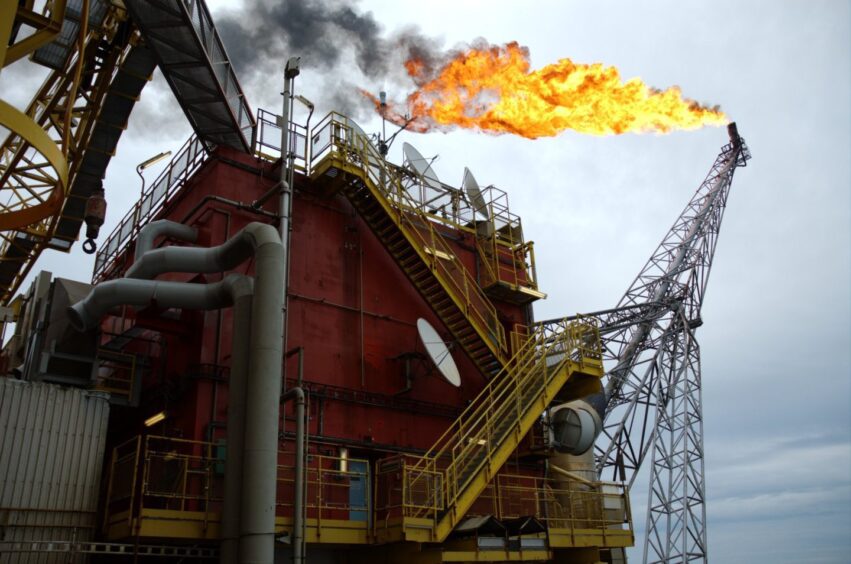
A recent report has outlined that North Sea oil and gas producing countries are not aligned with the Paris Agreement.
Oil Change International has shared in its ‘Troubled Waters: How North Sea Countries Are Fueling Climate Disaster’ report that Norway, the UK, the Netherlands, Germany, and Denmark are not on track to keep to the 1.5-degree warming limit.
Oil Change International writes: “Far from being on track to phase out production in the 2030s, the region could still be extracting significant levels of oil and gas in 2050, particularly in the UK and Norway.”
Oil Change International outlines that of the more than 5.5 million barrels of oil and gas per day the five countries extracted in 2023, Norway and the UK together accounted for 93%, followed by the Netherlands at three percent, and Germany and Denmark at two and one percent.
Last year Norwegian energy giant Equinor also said that the world was not on track to achieve the goals laid out by the Paris Agreement.
Set out in 2015’s COP21 in France, the Paris Agreement was adopted by 196 parties and outlined that nations should limit the increase in the global average temperature to 1.5°C above pre-industrial levels.
North Sea nations must ‘align all policies with a 1.5°c scenario’
To avoid exceeding Paris Agreement checkpoints the group behind the report recommends that “all five North Sea countries align all policies with a 1.5°c scenario.”
The Oil Change International Report sets out nine benchmarks the countries in question should be aligned on to get back on track with Paris Agreement targets.
The UK was found to be “Grossly Unaligned” on four of the topics while being labelled as “Unaligned” on five.
Oil Change International has reported that the UK is grossly unaligned with the Paris Agreement in setting an end date for production.
Recently Prime Minister Rishi Sunak wrote “I want more oil and gas that comes from home,” later adding: “The UK Government is backing British oil and gas and the tens of thousands of jobs the industry supports.
“We’re delivering new legislation to tap North Sea oil and gas with annual licensing rounds, to boost our energy independence and support our transition to net zero.”
Trade body Offshore Energies UK’s (OEUK) business strategy manager Ross Dornan said in response to the findings: “Oil and gas will have an important role in meeting our ongoing energy needs throughout the transition to net zero, and even after this.
“Oil and gas companies are also among the biggest investors in renewable energies. They rely on oil and gas revenues to reinvest into new areas and the existing energy supply chain relies heavily on oil and gas activity as demand in these areas grows.
“On our journey to net zero, we should be making the most of our own resources rather than increasingly relying on imports which have a higher carbon footprint.”
Windfall tax ‘loopholes and subsidies’ leave the UK coming up short
Last week’s budget saw Chancellor Jeremy Hunt announce an extension to the North Sea windfall tax by a year, bringing its projected end to 2029.
Trade body Offshore Energies UK (OEUK) said this was a “disappointing blow” which makes investment “impossible” to plan for UK oil and gas companies.
Despite this, the UK was also said to be grossly unaligned with designing fiscal terms to “align investment behaviour with production decline goals.”
The reason Oil Change Internation gave for this was: “Due to the number of oil and gas loopholes and subsidies in the UK tax system, companies often end up paying negative tax.”
However, last week it was reported that Harbour Energy, the UK’s largest producer of oil and gas, took a $500 million hit in its earnings as a result of the coutnry’s tax regime.
The company’s end of year reports found that an “effective tax rate” of 95% on its UK operations kept profits to just $32m for the 2023 financial year, after a tax expense of $565m.
Mr Dornan added: “We need to encourage more investment in homegrown energy to help grow our economy, boost jobs across our world class supply chain and deliver reliable supplies of cleaner energy for the UK.”
The country was also found to be off the mark when it comes to protecting “ecologically valuable areas” from oil and gas production.
UK falls short of Norway in some areas
The UK, unlike Norway, was also said to not be aligned with any of the report’s benchmarks.
Norway was said to be “fully aligned” with the Paris Agreement on regulating greenhouse gas emissions from oil and gas production while the UK was found to be only “partially aligned.”
This was the benchmark the UK scored best in with the country being found wanting with the remaining topics.
This shows that despite Norway having a larger share of the oil and gas produced in the North Sea the country is better aligned with Paris Agreement targets in some areas than the UK.
The UK regulator, the North Sea Transition Authority (NSTA), however, has been cracking down on emissions figures.
The NSTA is set to roll out a ruling that will see a cessation of production (COP) date put in place for any platforms 50% above the basin average carbon intensity – which will impact many hubs in the ageing UK sector.
When news broke of these plans late last year North Sea operators raised “serious concerns”, warning that the shutdown of UK platforms could be “dramatically accelerated”.
Recommended for you

 © Supplied by Oil Change Internati
© Supplied by Oil Change Internati